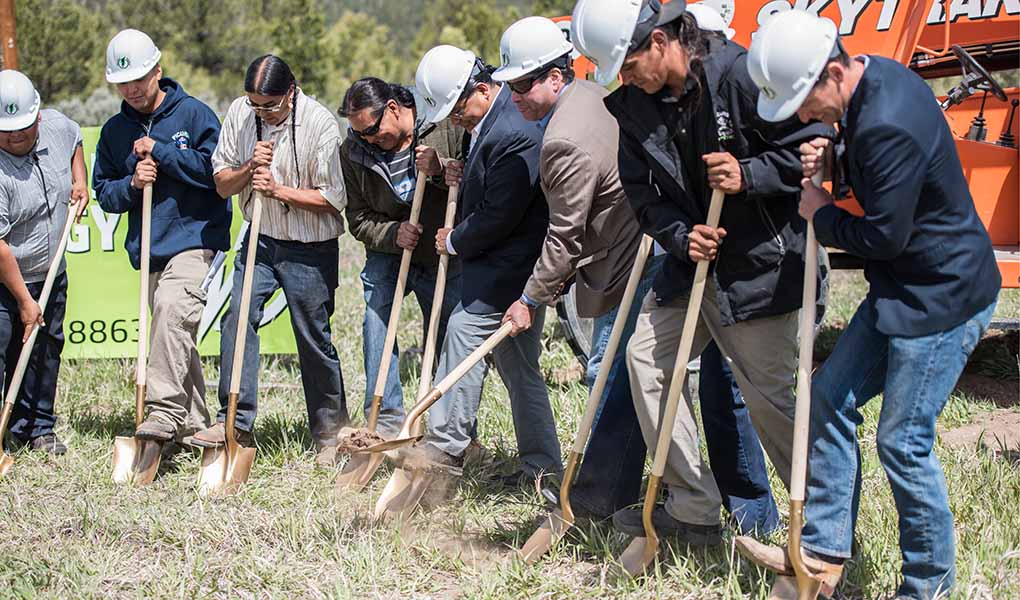Workforce Industry and Community Engagement
NREL engages with industry and community partners through outreach, technical assistance, peer-to-peer learning, and capacity building to address energy workforce needs.

Capabilities
Training and Capacity Building
NREL provides direct technical assistance and capacity building related to energy use, planning, and future scenarios in the U.S. and worldwide for multiple levels of jurisdictions.
Prizes
Funded by the U.S. Department of Energy (DOE), NREL administers the American-Made program to fast-track energy innovation through prizes and cash incentives, vouchers to connect innovators with national lab expertise, and a supportive network that helps engage and connect people to the resources they need to be successful. Several American Made prizes focus specifically on workforce development approaches, strategies, curriculum development, university program development, and collegiate student engagement.
Partnerships and Convenings
NREL facilitates forums for stakeholders to collaborate and coordinate on workforce issues, enabling members to learn from one another, prioritize challenges and opportunities, and identify and work together to implement solutions. Through these forums, NREL convenes and builds connections between workforce development practitioners, develops a deep understanding of workforce challenges, and fosters effective partnerships to support the success of programs and resources to support the energy workforce.
To understand and address clean energy workforce needs, NREL partners with:
- Industry and private sector organizations
- Project developers
- Economic development organizations
- Foundations
- Labor unions
- Community colleges
- Universities
- Community-based organizations
- Workforce development boards
- Federal, state, and local agencies.
Highlighted Projects
For almost two decades, NREL has engaged directly with the network of DOE's Weatherization Assistance Program workers and trainers to provide technical assistance and research that supports skilled workers in the weatherization and home performance industry. Engagement has included technical assistance, continuous improvement workshops, webinars and conference presentations with network partners, and the development and maintenance of resources that support the Guidelines for Home Energy Professionals industry credentials and certifications.
The Wind Energy Workforce Network Initiative on OpenEI is a tiered network approach to convene and coordinate wind energy workforce stakeholders at the national and regional level and provide targeted technical assistance and focus group support for regional network priorities. This collaborative ecosystem also encourages concrete actions aimed at completing workforce pathways from training to careers.
The American-Made Upskill Prize for the Solar Manufacturing Workforce is a $5 million prize designed to accelerate the expansion of the U.S. solar manufacturing workforce and equip workers with the skills necessary to revitalize the domestic solar manufacturing supply chain. This prize targets various facets of the U.S. solar photovoltaics module supply chain, addressing critical workforce needs.
DOE launched the American-Made Historically Black Colleges and Universities (HBCU) Energy Education Prize to help develop advanced energy programming opportunities for students. The prize focuses on inspiring K-12 and community college students to engage with and learn about energy subjects through HBCU-hosted educational programs; initiating partnerships between HBCUs and other universities with proven energy-focused programs to build new cross-university curriculum enhancements or exchange programs, along with degree and certificate programs; and integrating and building programming between university and industry partners to advance career opportunities for HBCU students in the energy field.
Publications
Community Toolkit for Designing and Implementing a Contractor Accelerator Program, NREL Technical Report (2023)
Clean Energy Employment Impacts, NREL Fact Sheet (2023)
Contact
Interested in partnering with NREL on clean energy workforce initiatives? Contact us:
Share
Last Updated July 1, 2025
